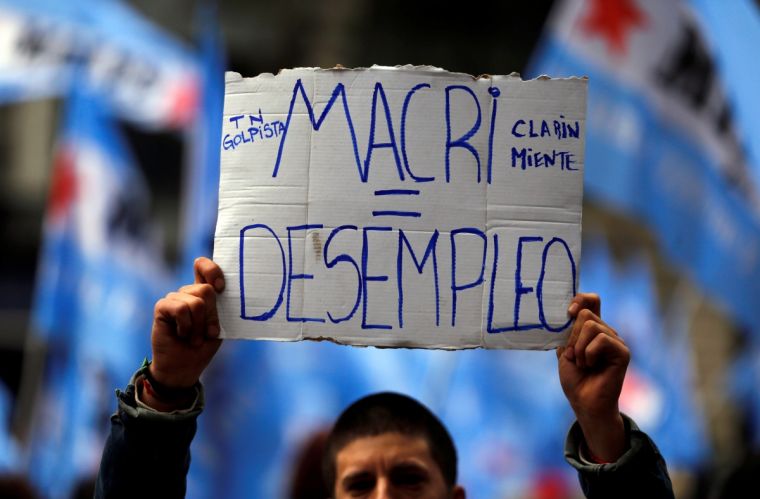Argentina, Pope Francis and the Number of the Beast

Is the Argentine government in league with the Devil?
That's certainly what Pope Francis seems to think. He's reported to have told one of his favourite charities to turn down a massive donation from the government because the amount includes the number 666.
On the face of it, it seems pretty unlikely. I'm sure I've telephoned people whose numbers include the dreaded digits and I've never lost any sleep over it. They're just numbers, as Pope Francis surely understands.
However, there's a bit more to it than that. The pope and Argentina's president Mauricio Macri are at odds politically, with Francis opposed to the right-wing president's stringent austerity programme, which he believes harms the poor. The donation by Macri's government of 16,666,000 pesos (£860,000) was hailed in Argentina's media as a sign of rapprochement. However, in a letter to the Schola Ocurrentes charity, Francis said: "The Argentine government needs to address so many needs you shouldn't be demanding a single penny from it."
But why did he actually tell the charity to turn down the donation? Vatican Insider, which reported it, says his note to the charity concluded with the postscript, "I did not like the 666."
Pope Francis is not superstitious; he's a scholar and a pastor, as well as being acutely aware of how the world works. So his objection to the numbers may have been because he saw them as a deliberate provocation, a childish attempt to mock the Church by suggesting it was taking money from its enemy. After all, a charitable donation is likely to be in round numbers. Why on earth would anyone donate such an odd amount?
Or it may have been an expression of irritation at the suggestion that the government could buy his goodwill by such a large donation. If this is the case, the '666' reference could have been to the power of the state, and a deliberate linking of Macri's government to a very specific theological concern.
In chapter 13 of the book of Revelation, John speaks of the "mark of the beast", without which no one could buy or sell anything, and of the "number of the beast". "This calls for wisdom. Let the person who has insight calculate the number of the beast, for it is the number of a man. That number is 666," he says (Revelation 13:15-18).
The likelihood is that the mark of the beast was the head of the emperor on a coin. It is awarning of the power of a godless economic and political system which seeks to dominate everyone.
The number of the beast is in all probability a reference to the Emperor Nero, one of the first to persecute Christians systematically. In New Testament Greek, the language of Revelation, the letters of the alphabet doubled as numbers. The first nine letters of the alphabet stand for one to nine, the next as 10-90 and so on.
In Aramaic, Nero Caesar would have been pronounced something like Neron Qaisar. And if you use the Aramaic numbering system, which works like the Greek, Nero's number adds up to 666.
Furthermore, if you miss off the final N in Neron – an alternative spelling – you get a numerical value of 616. Some early Greek manuscripts give the number of the beast as 616.
So if the pope objected to the apparently deliberate inclusion of the number '666' in the government's donation, it was either because he objected to the joke, or because he saw behind it an attempt to compromise the Church by buying it off. In the book of Revelation, the state is portrayed as violent and oppressive. It's the enemy of the Church. It is too strong to be defeated, though it won't gain the ultimate victory. But there must be no compromise with it.
Follow Mark Woods on Twitter: @RevMarkWoods











